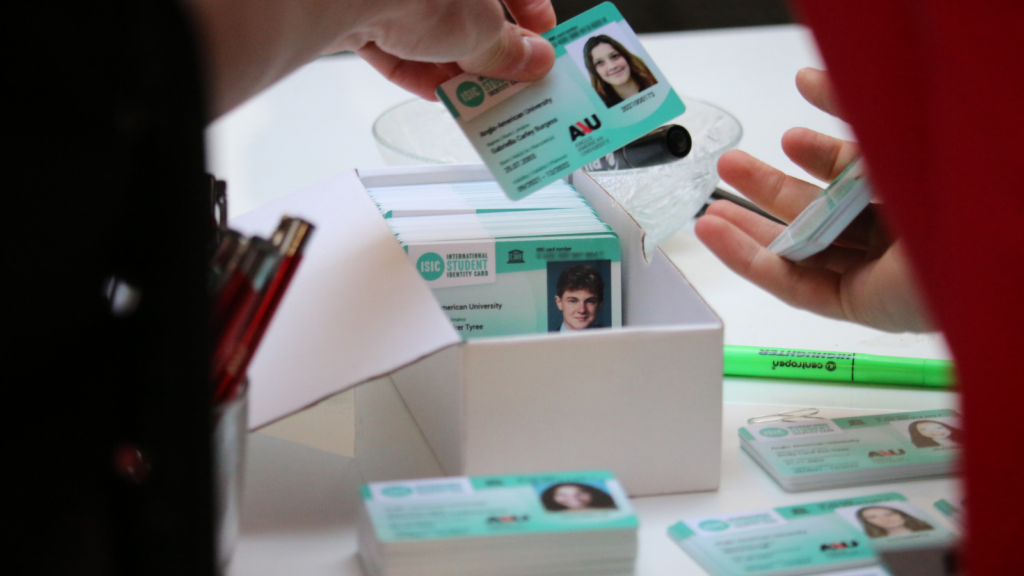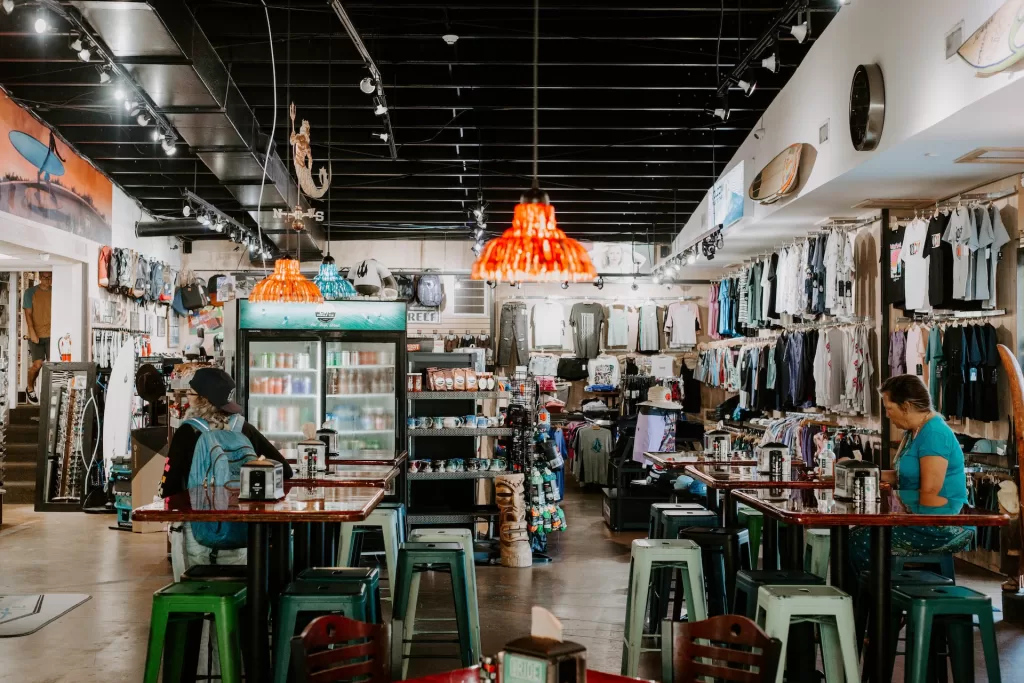Living in Prague on a student budget can be a challenging and overwhelming experience. From organizing transportation in an unfamiliar city to managing limited finances, there are a lot of uncertainties to navigate. As someone who moved to Prague from the United States as a college student at the age of 18, I understand these concerns firsthand. In this blog, I will share my top tips for making the most of your time in Prague without breaking the bank.
How to Budget for Groceries

Living in a country with persistent inflation can significantly impact your grocery expenses. In the Czech Republic, for example, I’ve noticed that Tesco soup packets, which once cost 7 CZK, now cost 12 CZK due to inflation. While this may seem like a negligible difference at first, every penny counts when you’re on a tight budget. As an American living in Prague, you may also need to adjust your shopping habits, as buying groceries in bulk is not as common in Europe, and refrigerators tend to be smaller. This means that you’ll likely need to purchase groceries weekly, which can quickly add up and strain your finances as a student in Prague. However, there are strategies you can employ to save money and reduce your grocery expenses.
Loyalty Programs
Enrolling in grocery store loyalty programs such as Tesco Clubcard, Lidl Plus, and Kaufland can be a great way to save money on groceries while living in Prague on a student budget. These programs offer various rewards, with some stores having better rewards than others. By downloading the apps, you can easily keep track of the ongoing deals without having to physically visit the store. The apps also often feature exclusive coupons that you can only access through the loyalty program. Using the loyalty cards is straightforward, as you simply need to scan the barcode and the discounts will automatically be applied. Overall, signing up for these loyalty programs is a simple yet effective way to reduce your grocery expenses in Prague!
Comparing Prices

To get the best deals on groceries while living in Prague on a student budget, it’s a good idea to compare prices across different stores and locations. While having the apps of various grocery stores can help you keep track of their ongoing deals, you’ll need to visit them in person to gauge their regular prices. To compare prices more efficiently, you can create a grocery list in Excel, where you list each item you usually buy and compare the costs across different stores.
This method requires some time and effort as you’ll need to visit different stores to purchase the cheapest option for each item. However, the savings can be significant. For instance, you may find that cheese is cheaper at Kaufland, bread at Lidl, and soda at Tesco. Keep in mind that the cost of products may also vary based on whether they are produced domestically or imported.
In addition to comparing prices across grocery stores, it’s also (always) worth checking out local farmer’s markets! These markets may offer fresh and cheaper vegetables, depending on the season. By taking the time to shop around and compare prices, you can stretch your student budget further and save money on groceries in Prague!
Managing Currency Exchange Rates

It’s important to keep in mind that currency exchange rates can be deceiving, especially when you’re in a foreign country with a vastly different currency than what you’re used to, such as the Czech koruna (CZK). When faced with large numbers in a foreign currency, it’s easy to lose track of how much you’re actually spending and end up with a hefty bill. To avoid this, try to mentally convert prices to your home currency and ask yourself if it’s a price you would be willing to pay back home.
Even if you’re dealing with a currency that appears familiar, like the Great British Pound (GBP), it’s crucial to remember that the exchange rate can drastically affect the actual value of the currency. For example, 30 GBP may seem like a reasonable price, but when converted to USD, it becomes almost 40 dollars. Be mindful of these hidden costs to avoid overspending while abroad!
Exchange Rates Can Fluctuate
It’s important to keep in mind that exchange rates can fluctuate frequently and may have a significant impact on your budget. For example, if you’re studying abroad or traveling long-term, you may be relying on a fixed budget that you’ve saved up in your home currency. However, if the exchange rate shifts significantly, you could end up with much less buying power than you originally planned for.
One way to mitigate this risk is to keep a close eye on exchange rates and adjust your budget accordingly. Since I started living in Prague on a student budget, I’ve been using a currency conversion app and website to stay up-to-date on current exchange rates (and to easily convert prices from one currency to another). This can help you make more informed purchasing decisions and avoid overspending!
Overall, while exchange rates may seem like a small detail, they can have a big impact on your finances while living or traveling abroad. By staying informed and taking steps to mitigate the risks, you can ensure that you’re making the most of your budget and avoiding any unpleasant surprises.
Foraging in the Summer
In many parts of the world, it’s possible to find free fruit trees that anyone can pick and enjoy! This is especially true in the Czech Republic, where foraging is a popular pastime due to the abundance of fruit trees. To reduce food waste and promote eco-friendliness, the government has even created a website that maps out where people can legally go to pick fruits, herbs, and berries. It’s amazing how much fresh produce you can find if you just take the time to explore. Cherries, apples, pears, plums, and even almonds are just a few of the fruits that you might come across.
If you’re interested in foraging, it’s worth doing some research to see what’s available in your area. Depending on the region’s climate and geography, you may be able to find a wide variety of fruits and nuts growing in the wild. Not only is foraging a great way to get fresh, nutritious food for free, but it’s also an opportunity to support sustainable agriculture and connect with nature.
Make Use of Your Student Discounts

If you’re a student studying abroad, having an International Student Identification Card (ISIC) can help you save money on various expenses. The ISIC website provides a comprehensive list of companies that offer discounts to cardholders, allowing you to easily find deals on everything from transportation to entertainment.
With an ISIC card, there are numerous ways to save money while studying abroad in Europe. RegioJet is just one of the many transportation companies that offer discounted train and bus tickets to ISIC cardholders, making travel within Europe more accessible. Moreover, in the Czech Republic, having an ISIC can grant you discounts on public transportation, phone plans, and admission to museums, art galleries, and even some nightclubs. With all of these benefits, it’s no wonder that having an ISIC has made living in Prague on a student budget much more affordable for me.
Even some restaurants and fast food chains provide discounts to ISIC cardholders, which can help you save on food expenses as a student. Don’t forget to check if the country you’re studying in collaborates with ISIC and take advantage of the benefits that come with it.
Avoid Fast Food Chains – Try Street Food Instead!

When traveling in Europe, it’s important to keep in mind that fast food chains can be pricier compared to their U.S. counterparts, with smaller portions and higher prices, which can leave you feeling unsatisfied and overcharged. However, signing up for loyalty programs can help you save money if you still want to indulge in fast food.
That being said, I highly recommend exploring local street food options in different parts of the city. Street food is usually cheaper than eating at a sit-down restaurant or a fast food chain, and it allows you to try new flavors and ingredients that you may not have otherwise encountered. It’s also a great way to experience the culture of a new place.
Europe is a great place to explore unique street food options that are specific to the region’s culinary traditions. From sweet and savory crepes, juicy sausages, and freshly baked pastries to other exciting specialties, such as doner kebab and schnitzel, you’ll find that each country and city has its own distinct flavors and influences. Many of these street food options are shaped by the local immigrant communities, making for a truly diverse and authentic culinary experience. So be sure to keep an eye out for these tasty treats as you explore the streets of Europe.
One of the advantages of street food is that it’s often made right in front of you, so you can see the ingredients and preparation methods used. Additionally, many street food vendors take pride in their cooking and use fresh, high-quality ingredients to create their dishes.
So, whether you’re traveling on a budget or just want to experience local flavors and culture, be sure to seek out some street food vendors. You never know what delicious surprises await!
Be Mindful of Cultural Habits
When traveling in Europe, it’s important to be mindful of unhealthy habits that may be more prevalent than in your home country. Smoking is a social activity that’s widely accepted, and you may feel tempted to join in to fit in with locals. However, not only is it detrimental to your health, but it can also be expensive in the long run. Even if cigarettes are cheaper in Europe than in the US, it’s still an unnecessary expense.
Similarly, alcohol can be cheap in some parts of Europe, making it easy to go overboard and spend more than you intended. While it’s tempting to enjoy the local beverages, be mindful of your consumption and the impact it can have on your finances. It’s important to avoid picking up unhealthy habits and instead prioritize your health and budget while traveling.
Finding Accommodation

If you are a student looking for accommodation, it’s important to be mindful of your expenses and not fall into the trap of expensive studios or individual flats. Instead, consider joining local student forums and Facebook groups to find flatshares. This is not only a great way to save money, but also an opportunity to socialize. However, when looking for student dorms, be cautious of overpriced accommodations that may take advantage of international students who are not familiar with the rental market. It’s important to read reviews and contracts carefully before signing and to start the search as early as possible to avoid being rushed into a risky lease. Beware of scammers!
Flatshares & Student Dorms
When searching for a flatshare, it’s important to consider a few things. First, make sure you are comfortable sharing a space with other people. This means not only sharing the living areas like the kitchen and bathroom but also sharing the responsibilities that come with living with others, such as cleaning and grocery shopping. However, flatsharing can also be a great way to make new friends and socialize with people from different backgrounds.
When looking for a flatshare, joining Facebook groups and local student forums is a great place to start. These online communities can connect you with potential flatmates and help you find a flat that fits your budget and needs. Additionally, many universities have student accommodation services that can assist you with finding a suitable flatshare or other housing options.
While student dorms can be a convenient option, they are often more expensive than sharing a flat. Be sure to compare the costs of different housing options before making a decision. Also, be aware that some student dorms may overcharge international students, taking advantage of the fact that they may not be familiar with local prices.
When searching for housing, it’s important to read reviews and contracts carefully before signing. Look for any hidden costs or fees and make sure you understand the terms of your lease. Starting your housing search early can also help you avoid rushing into a risky lease that is difficult to break.
Lastly, don’t overlook areas of the city that are farther away from the center. Many European cities have excellent public transportation networks that make it easy to get around. Living in a less central area can often mean cheaper rent and a quieter atmosphere while still being within easy reach of the main attractions.
Try Thrifting

If you’re living in Prague on a student budget, updating your wardrobe or acquiring household items may seem like an unnecessary expense. Although you likely have some clothes you like, you aren’t can’t bring your entire wardrobe abroad (and you’ll likely want or need to update it)! The good news is – there are ways to update your wardrobe without breaking the bank. Second-hand shops are a great option, especially in parts of Europe where they are prevalent. Prague, in particular, has a wide range of thrift stores, vintage shops, and flea markets that offer stylish and affordable clothing options.
Aside from clothing, you may also need to purchase household items such as furniture, kitchenware, or electronics. Instead of buying new items at high prices, consider checking online forums such as Facebook Marketplace, where locals often sell their gently used items for a fraction of the cost. You can also find groups and forums dedicated to buying and selling second-hand items in Prague specifically, which can be a useful resource for finding what you need.
By shopping second-hand, you not only save money but also reduce your environmental impact by giving new life to pre-loved items. Additionally, buying second-hand can add an element of uniqueness to your wardrobe and home, as you may find vintage or one-of-a-kind items that you wouldn’t find in traditional retail stores. So before you go on a spending spree, consider exploring your second-hand options in Prague to stretch your student budget further.
Moving Abroad Is Manageable!
Making the decision to move abroad can be overwhelming, especially when you’re on a tight student budget in Prague. However, it’s important to remember that you don’t need to spend a lot of money to create lasting memories and have new experiences. By being resourceful and creative, you can find ways to cut corners and save money while still enjoying everything that your new city has to offer. Whether it’s joining a local student group, shopping at thrift stores, or exploring the city’s many affordable attractions, there are plenty of ways to make the most of your time abroad without breaking the bank. So, embrace the challenge and get ready to embark on a life-changing adventure!